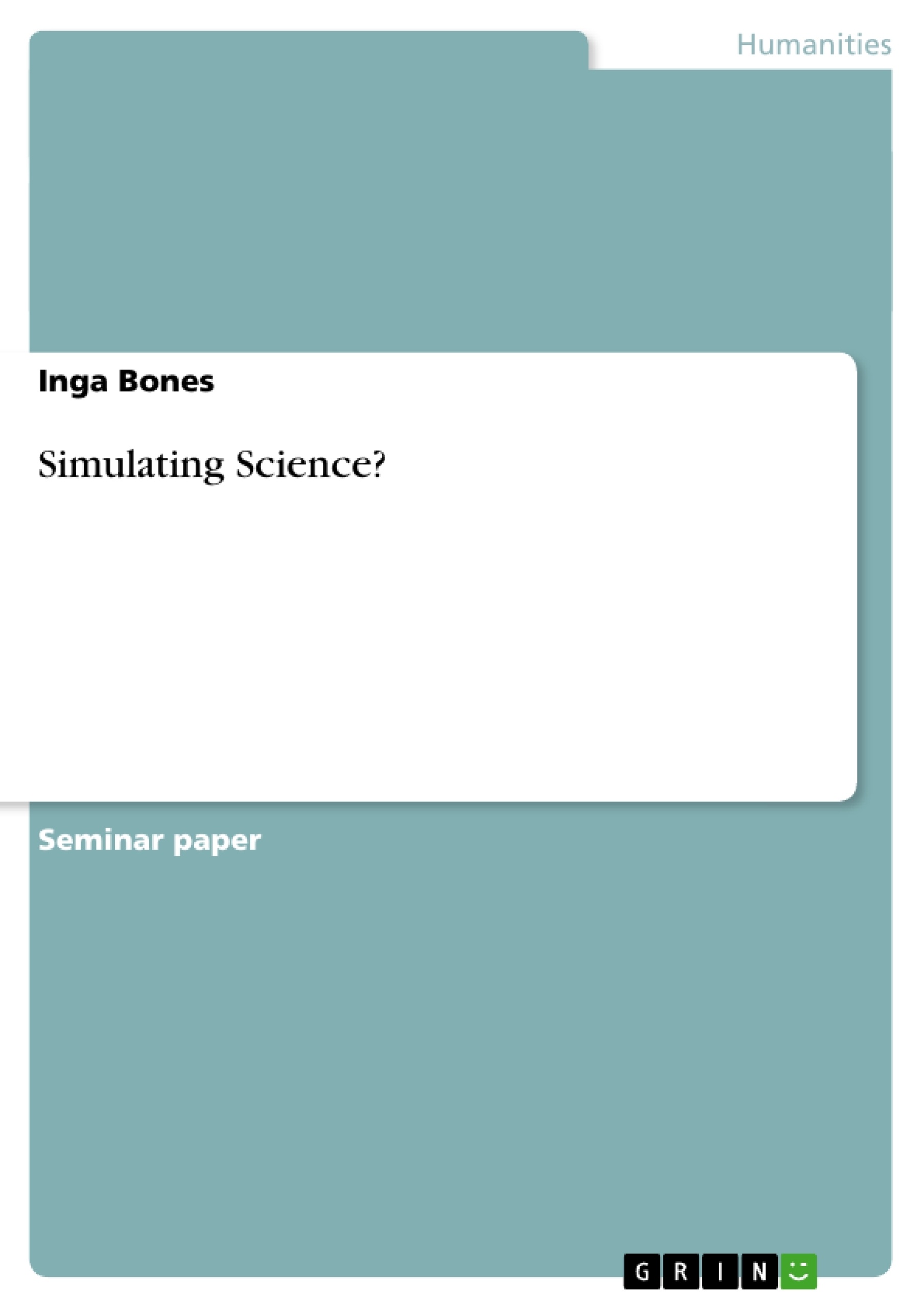In the early 1980s, Robert Axelrod published several articles on The Evolution of Cooperation, discussing and interpreting the results of his well-known computer tournaments and of a series of subsequent simulations. Both the tournaments and simulations were conducted in order to find a suitable, evolutionary stable strategy for the iterated prisoner's dilemma, which is generally considered an appropriate model of a
certain type of social dilemma that arises when "the pursuit of self-interest by each leads to a poor outcome for all."
The results of the tournaments and simulations led to a generalized theory of the evolution of cooperation, which claims to provide an explanation for various historical, social and biological phenomena. Axelrod`s work contributed extensively to popularizing computer simulation as a scientific method in the social sciences. Besides the fact that his approach had an unquestionably high impact on succeeding research and ushered in the "simulation era" in the social sciences, the use Axelrod made of computer simulations raises questions about their methodological and epistemological
status: If, as Axelrod states in his paper "Advancing the Art of
Simulation in the Social Sciences", simulation can serve the purposes of prediction, proof and even scientific discovery, what need is there for conducting experiments any longer? Can't we simulate science?
Admittedly, this suggestion sounds somewhat exaggerated, but why exactly do most of us share the intuition that there are fundamental differences persisting between simulations and experiments? What are the characteristic features distinguishing them? Do computer simulations in general - and
Axelrod's tournaments in particular - resemble experiments insofar as their
potential to provide us with surprising results that permit further theorizing
is concerned? Or are they nothing else than mere "number-crunching techniques", using brute-force computational means in
order to generate data from theoretical knowledge and assumptions already built into the underlying model?
The question where to draw the conceptual line between simulation and
experiment has turned out to be of great interest to philosophy of science,
not least since the categorization might be relevant to the way the results
are assessed and used. The objective of this paper is to elaborate on the
distinctive characteristics of simulations in contrast to experiments.
Inhaltsverzeichnis (Table of Contents)
- Introduction
- Axelrod's computer tournament - a brief overview of its setup, results and further conclusions
- Simulating science? Simulations versus experiments
- Materiality
- External validity and its justification
- Interim findings
- Are Axelrod's conclusions externally valid?
- Conclusion
Zielsetzung und Themenschwerpunkte (Objectives and Key Themes)
This paper investigates the nature and significance of computer simulations in scientific research, particularly focusing on the work of Robert Axelrod and his famous computer tournaments related to the iterated prisoner's dilemma. The central objective is to explore the ontological and epistemological status of simulations, specifically comparing them to experiments.- The distinctive characteristics of simulations in contrast to experiments
- The classification of simulation as a form of theorizing, experimenting, or a "third way of doing science"
- The problem of assessing the epistemic power and external validity of simulations
- The potential of simulations to provide "surprising" results and contribute to scientific discovery
- The role of background knowledge and the justification of external validity in simulations
Zusammenfassung der Kapitel (Chapter Summaries)
- Introduction: This chapter introduces the work of Robert Axelrod, focusing on his computer tournaments and simulations related to the iterated prisoner's dilemma. Axelrod's research aimed to find an evolutionary stable strategy for cooperation in a context where individual self-interest often leads to a negative outcome for everyone. He drew conclusions about the emergence of cooperative behavior in the absence of a central authority, based on the results of his simulations. The chapter raises questions about the methodological and epistemological status of simulations and explores whether they can be considered a legitimate alternative to experiments in scientific research.
- Axelrod's computer tournament - a brief overview of its setup, results and further conclusions: This chapter provides a detailed overview of Axelrod's computer tournament. The tournament involved participants from various fields submitting their decision rules for the iterated prisoner's dilemma. The most successful strategy, TIT FOR TAT, was found to be robust, stable, and initially viable in a variety of environments. Axelrod's analysis of the results led him to develop a theory of cooperation, which he believed could explain how cooperation can emerge and thrive in a non-cooperative world.
- Simulating science? Simulations versus experiments: This chapter examines the key differences between simulations and experiments, exploring the materiality of each approach and the concept of external validity. It considers different proposals for distinguishing between these two methods, including the role of background knowledge in justifying external validity.
- Are Axelrod's conclusions externally valid?: This chapter delves into the problem of assessing the epistemic power and external validity of Axelrod's simulations. It asks whether the "surprising" results of his tournaments are reliable and whether his theory of the evolution of cooperation provides new insights that can be empirically confirmed.
Schlüsselwörter (Keywords)
This paper explores the use of computer simulations in the social sciences, focusing on the work of Robert Axelrod and his computer tournaments related to the iterated prisoner's dilemma. Key terms and concepts include: computer simulation, scientific method, experiment, theorizing, external validity, materiality, cooperation, evolutionary stable strategy, iterated prisoner's dilemma, and the "simulation era".- Quote paper
- Bachelor of Arts (B.A.) Inga Bones (Author), 2010, Simulating Science?, Munich, GRIN Verlag, https://www.hausarbeiten.de/document/148996


